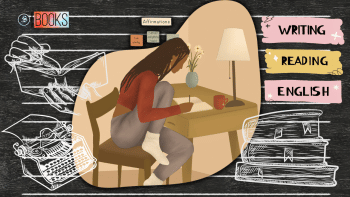At least we tried

If fiction writers are blessed with slightly larger imaginations than the rest of the world, then so is their capacity for grudges, pettiness, beef. Let's face it—it takes a certain narcissism and an absurd amount of self-belief to think readers will stick through with you, page after page, to the bitter end, especially in this day and age when so much content is easily accessible. If a writer bores you for even a fraction of a section, a click of the mouse or a gentle upward swipe of your thumb can transport you to something else, something more interesting. In this unforgiving world of readers, writers want to be read—more than anything else. The narcissism can enter into an uneasy marriage with crippling anxiety, self-doubt, and self-loathing. No wonder so many writers were famously reclusive (Salinger, maybe Coetzee), and a considerable number of them wanted to have their manuscripts never see the light of day (most famously Kafka).
Writing, at the end of the day, is a solitary activity. Unlike the film director, who commands a large budget and an army of cast and crew, and is practiced in the art of compromise, a writer's task is much simpler—stare into a blank page and write something worth reading. This is terrifying, even for the best of writers, and really the most private of acts. Sharing one's work, whether it is through publishing the old-fashioned way, self-publishing, bringing out an ebook, or simply posting a vignette on social media, can be daunting—a bit like undressing in public. Even worse can be the experience of sharing your work with other writers, opening yourself up to their feedback, counting the number of likes. If you put your heart into a piece, and it gets not a single heart react when you post it, the experience can—well—break your heart. Writers' groups or communities can seem oxymoronic for such a lone wolf trade, and yet, we always keep coming back to them. Such is the pull and power of community—it can transcend all the pettiness and make us all better.
So on the one hand, there is the cinematic image of the writer—antisocial, lonely, maybe with a drinking problem, wallowing in self-doubt, typing out copy after copy, crumpling up pieces of paper and tossing them in the bin. On the other hand, there is the enormous popularity globally of literary festivals, writers' retreats, MFA programs—and this popularity is only growing. New forms of community will no doubt emerge in the coming years, all as a counterweight to the solitary world of creative writing. With the Talespeople community, and the Sehri Tales challenge, we tried to do something along those lines. The response has gone beyond what we had imagined, so maybe it was worth it. A big thank you to all of our participants and partners for coming along with us in this ride so far, and to the core Talespeople moderators for working so hard to pull off this crazy month-long Ramadan writing challenge.
Abak Hussain is a journalist, and a Director of Talespeople.


 For all latest news, follow The Daily Star's Google News channel.
For all latest news, follow The Daily Star's Google News channel. 








Comments